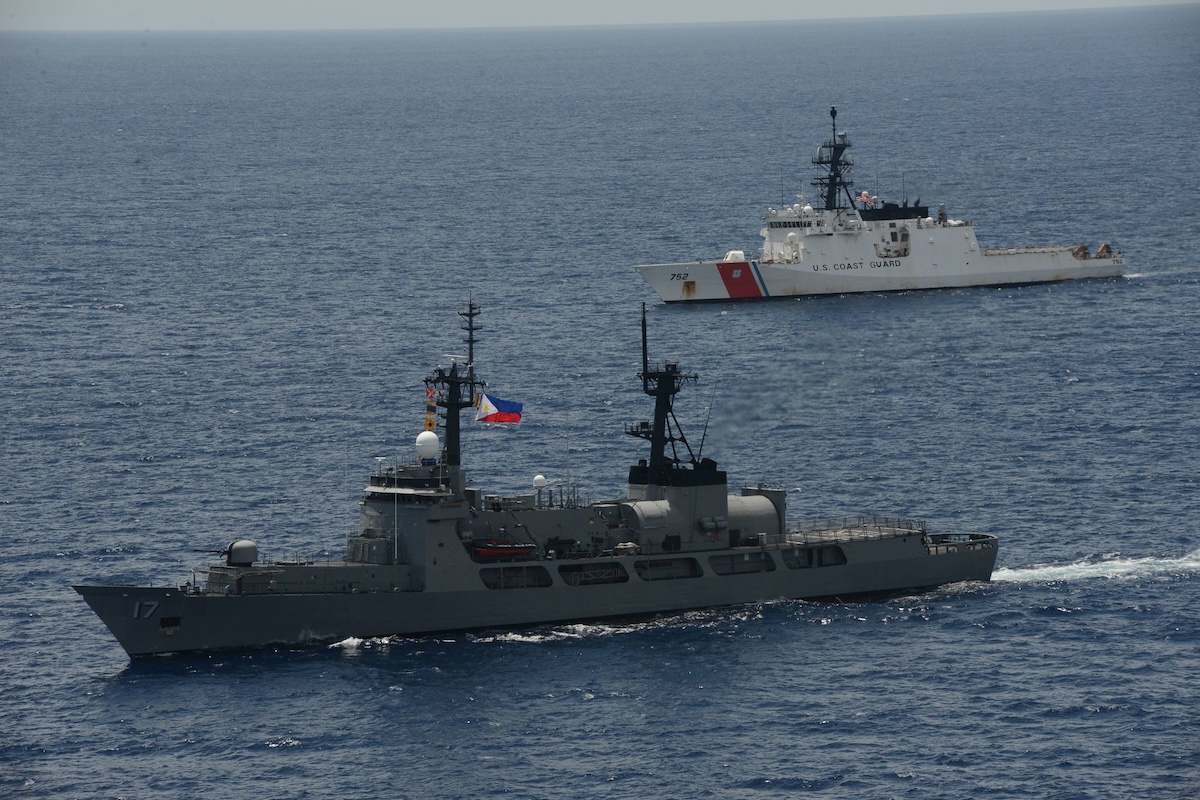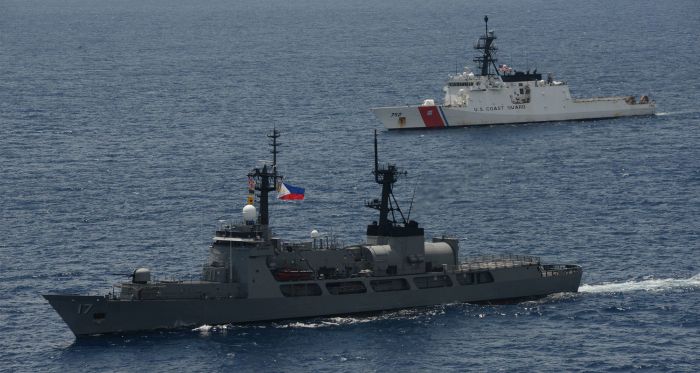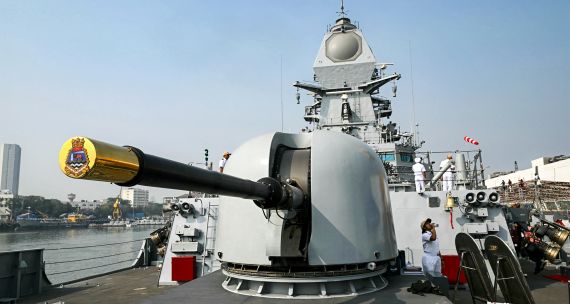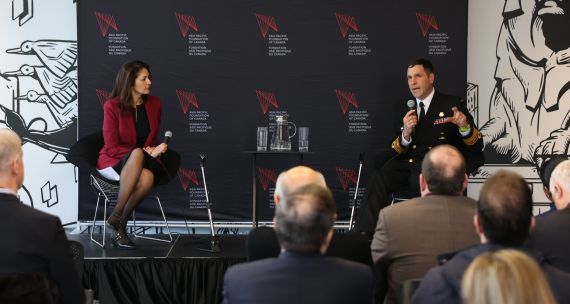In the past two years, the China Coast Guard (CCG) has intensified its aggression against Philippine vessels, especially against the latter’s rotation and resupply (RORE) missions to the Barko ng Republika ng Pilipinas (BRP) Sierra Madre, a grounded Philippine vessel on the Second Thomas Shoal, also known as the Ayungin Shoal, which lies within the West Philippine Sea (WPS). The WPS is the part of the South China Sea that encompasses the Philippines’ lawful exclusive economic zone (EEZ). Its sovereignty over this maritime territory is anchored in the United Nations Convention on the Law of the Sea (UNCLOS) and was legally reinforced by a 2016 arbitral ruling.
China’s aggression has included firing water cannons, pointing lasers, and blocking and ramming Philippine ships. The most serious act of aggression occurred on June 17, when the CCG blocked and boarded Philippine vessels near the Ayungin Shoal, which caused a serious injury to a Filipino sailor. This behaviour prompted both Filipino and international condemnation.
China is aware of the strategic risks of continuing to escalate tensions with the Philippines, a U.S. treaty ally. Thus, possibly as part of this calculation, on July 21, Manila and Beijing reached a provisional arrangement regarding the Philippines’ RORE missions. While the details of the agreement were not released publicly, the Philippine Department of Foreign Affairs (DFA) stated that both sides recognized the need to de-escalate. However, the DFA also highlighted that the agreement “will not prejudice each other’s positions in the South China Sea.”
The test of the agreement’s effectiveness will be China’s willingness to restrain its expansionist ambitions in the WPS. However, China’s recent behaviour suggests that the agreement may be short-lived. Therefore, Manila must continue to operationalize a robust and multi-aligned foreign policy to strengthen security linkages with both extra-regional and regional partners to raise the cost of China's adventurism in the WPS. Only then might Beijing consider pursuing more genuine negotiations for de-escalation.
The limits of trust-based agreements
The Philippines-China provisional agreement on the Ayungin Shoal may be undermined if Beijing fails to follow through with long-term confidence-building and trust-based agreements. Recent trends in the Indo-Pacific have shown how easily Beijing breaks status-quo-related pacts and years' worth of confidence-building measures with its neighbours. Examples include China's significant military buildup along the Line of Actual Control (LAC) with India, its expanding reach in the Gulf of Tonkin vis-à-vis Vietnam, and new land claims vis-à-vis Bhutan.
Since Ferdinand Marcos Jr. became president of the Philippines in mid-2022, Beijing has been inconsistent on several occasions in saying one thing at the political level but doing the exact opposite at sea. For instance, when Marcos Jr. met Chinese President Xi Jinping in 2023, the two leaders pledged to manage tensions and set up a hotline between their foreign ministers. However, the following month, the CCG pointed a military-grade laser at a Philippine Coast Guard (PCG) vessel in the WPS during its resupply mission to the BRP Sierra Madre. In March, the CCG and Chinese naval ships, accompanied by 42 Chinese maritime militia vessels, were spotted close to the Thitu or Pag-asa Island—an integral part of Philippine territory. When China’s then-foreign minister Qin Gang visited Manila in April 2023, ostensibly to make new peace pledges, the CCG again engaged in dangerous manoeuvres in the WPS immediately after.
In fact, cracks began to appear in the recent provisional agreement only one day after it had been announced. On one hand, the Philippines conducted a successful resupply mission on July 27 without any interference from the CCG. On the other hand, Beijing was already pursuing other strategies to support its expansionist ambitions, in this case, through disinformation. On July 22, China had claimed that according to the bilateral agreement, Beijing would allow the Philippines to conduct its RORE missions but only after the latter gave China advance notice. A Chinese foreign affairs spokesperson also mentioned that China will conduct on-site verification of Philippine resupply vessels to ascertain that supplies are for humanitarian purposes. This claim was firmly rejected as inaccurate by the Philippine government.
What these Chinese actions and statements indicate is that Beijing is attempting to alter the narratives of the agreement to its favour to justify any future aggression against Philippine vessels. After the successful RORE mission, China’s foreign ministry again claimed that the Philippines informed and sought Beijing's permission before conducting its resupply mission. These constant attempts by China to push these one-sided narratives call into question the sustainability of this provisional agreement. While some observers pointed out that that the CCG did not directly interfere with the latest RORE, a closer look at Beijing's behaviour and statements before and after this occurrence paints a different picture.
Beijing engaged in disinformation by pushing a narrative that seeks to illustrate how Manila has agreed to allow checks during its resupply missions, in addition to providing prior notification to China. Through this cognitive warfare, it is trying to divide Filipino public opinion. There is precedent for this approach: this was also the objective behind Beijing's insistence on a "gentleman's agreement" with the administration of former Philippine president Rodrigo Duterte (2016-22). However, public opinion in the Philippines has remained relatively supportive of Marcos Jr.’s WPS approach and a majority of Filipinos continue to view China with distrust.
Meanwhile, China's overarching expansionist ambitions toward the WPS remain undeterred. On August 11, two Chinese Air Force aircraft dropped flares in the path of a Philippine Air Force plane while the latter was on a routine patrol over the Bajo de Masinloc, which is within the Philippines’ EEZ, putting the lives of the Filipino soldiers at risk.
There is another unfolding geopolitical hotspot in the WPS: the Sabina, or Escoda, Shoal, which also lies in the Philippines' lawful EEZ. Today, the shoal is at the centre of a strategic face-off between China's largest coast guard vessel and a PCG vessel. In April, the Philippine vessel positioned itself in the Escoda Shoal over concerns about illegal Chinese reclamation activities. However, the CCG vessel proceeded to the shoal to intimidate and provoke the presence of the PCG. While the Philippines has maintained a robust defence position on the shoal in the face of Chinese assertiveness, the chances of miscalculation remain high, and strain the limited number of PCG vessels operating in this maritime space. On August 14, the Philippine Navy stated that the number of Chinese military vessels in the WPS had nearly tripled compared to a count conducted earlier that month.
By making a holistic observation of these Chinese behaviours, it is easier to recognize that Beijing is unlikely to actively de-escalate for the long term. These provocations also demonstrate that China remains intent on expansion in the greater South China Sea at the expense of Philippine sovereignty and sovereign rights, including opening more fronts against the Philippines in the WPS.
Manila needs to deepen linkages with like-minded external actors
Despite the challenges it faces from China's expansionism in the WPS, Manila maintains that it favours diplomatic negotiations. On August 13, Foreign Affairs Secretary Enrique Manalo noted that the government is open to the possibility of expanding the scope of the provisional agreement with Beijing towards the rest of the WPS. While the recent provisional arrangement is an essential step for diplomacy, expecting China to co-operate in good faith is counterproductive, as illustrated in the previous section.
What, then, may have led Beijing to pursue an arrangement with Manila? One reason may have been that it was a calculated move to give Chinese maritime forces time to regroup and recalibrate their options towards the Ayungin Shoal at a time when further escalation seemed eminent. China understands its military limitations and does not seek to engage in a shooting war. Thus far, it has been able to pursue expansion in the Western Pacific without the overt use of military force through what are commonly referred to as ‘gray zone’ manoeuvres. However, the June 17 incident not only catalyzed international condemnation of Beijing but also raised the stakes of confrontation, especially when the U.S. indicated its willingness to accompany the Philippines in the latter’s resupply missions. It should be noted, however, that the Philippines was clear on keeping resupply missions purely Filipino-centric. It seems that China, also realizing the heightened cost of miscalculation, chose to partake in the de-escalation process. Therefore, Beijing’s desire to de-escalate reflects its perception of threats and risks rather than its interest in stabilizing relations.

While negotiations are the objective, the means to this end lie in raising the cost to China of its aggression in the WPS. Under the Marcos Jr. administration, the Philippines has significantly increased its efforts to explore more avenues of co-operation to address the emerging geopolitical dynamics in the WPS. These include establishing the ‘SQUAD’ security arrangement with Australia, Japan, and the U.S. to catalyze more frequent military exercises in the maritime domain and signing a reciprocal access agreement with Tokyo to enhance army-to-army operations.
During their fourth '2+2’ ministerial dialogue on July 31, the U.S. and the Philippines focused on securing the greater South China Sea and deterring China's expansionism in the WPS. The provisional arrangement between Manila and Beijing notwithstanding, Manila and Washington likely discussed contingencies if China violates its end of the agreement. Washington announced that it is working on allocating US$500 million in defence funding for the Philippines’ military and coast guard. In addition, the Pentagon announced a contract worth over US$32 million to improve the infrastructure of the Philippines’ Basa Air Base by July 2026. This will also serve as an opportunity to fortify the nine sites under the Enhanced Defense Cooperation Agreement when the Philippines struggles to allocate more funds to its modernization.
Moreover, along with the U.S., Australia, and Japan, Canada has also demonstrated its intention to play a more active role as a security partner: Ottawa provided the Philippines’ coast guard access to its satellite to detect dark ships — “those that have switched off their location transmitters” — in real-time. Canada has also begun negotiations with the Philippines for a Visiting Forces Agreement, paving the way for more sophisticated defence collaborations. Furthermore, Canada has been actively participating in multilateral maritime and air patrols with the Philippines to improve interoperability and joint preparedness against emerging threats.
Bolstering intra-regional co-operation
In addition to strengthening security co-operation with countries beyond Southeast Asia, Manila recognizes the need to work more closely with immediate neighbours. China has thrived in a divided Southeast Asia where it can effectively pursue a divide-and-conquer strategy and keep external powers at bay. Several Southeast Asian countries — despite also being claimants to the South China Sea dispute — have been wary and even critical of Manila’s position.
However, there have been notable developments in Philippines-Vietnam security relations. The two share common concerns about Chinese expansionism, and recently, China has been pushing the envelope with Vietnam as the former seeks to claim more areas in the Gulf of Tonkin. While Vietnam’s strategy against China involves different elements than the Philippines’ strategy, given the former’s national political ideology and strategic culture. But both Southeast Asian countries are making it clear that robust co-operation between them is needed if China’s expansionist ambitions are to be pushed back or deterred.
On June 21, Hanoi announced its willingness to hold talks with Manila over their overlapping South China Sea claims. While talks do not immediately lead to resolutions, they can provide a foundation for resolution. The two countries’ coast guards conducted joint exercises on August 9; they willlikely hold another drill by the end of the year. If Manila and Hanoi can sustain and increase the level of confidence-building and interoperability co-operation, the two may eventually be able to pursue more sophisticated and even binding resolutions to their maritime boundary dispute, similar to when Vietnam and Indonesia successfully settled their maritime border dispute in December 2022 after sustained negotiations.
Another development is the strengthening of security relations between the Philippines and Singapore. On July 24, the two countries signed a defence pact to widen the scope of their military co-operation, likely paving the way for a comprehensive roadmap for collaboration on areas of mutual interest. While Singapore is not a claimant to the South China Sea dispute, it is a significant maritime Southeast Asian nation. Thus, closer ties with Singapore complement Marcos Jr.'s initial proposal of improving co-ordination among maritime Southeast Asian countries, making it more difficult for China to pursue its revisionist ambitions. While the pace of security co-operation between Manila and its Southeast Asian neighbors may lag compared to its ties with extra-regional partners, the increased planning is a sign of success given the complex and varied strategic calculations each Southeast Asian country makes in security co-operation, especially with China's advantageous geography and its growing economic clout.
In positioning itself as the fulcrum for strategic co-operation with like-minded countries within and beyond Southeast Asia, the Philippines has created opportunities for an intersection of co-operative arrangements through expanding partnerships. Just as a U.S.-Philippines-Japan trilateral branched out to the SQUAD and incorporated new partners such as Canada into its operations, so can the Philippines serve as a bridge between like-minded partners both within and beyond Southeast Asia. For example, there is growing interest in exploring Japan-Philippines-Vietnam and Japan-Philippines-India co-operative frameworks. Therefore, forging more robust linkages of like-minded partners that seek to keep the Indo-Pacific's maritime domain free, open, and rules-based can potentially apply more costs to China's adventurism in the region, particularly in the WPS.
Continuity amid uncertainty
Manila’s more proactive position in defending its sovereignty based on international law does not bode well for China’s expansionist ambitions. However, its challenge will be to sustain these modes of co-operation over the long term.
One concern is whether Marcos Jr.’s successor will be equally committed to this approach. His term as president will end in mid-2028, and a possible Sara Duterte presidency could roll back his achievements. In addition, there are similar uncertainties about the U.S. commitment under a possible second Trump presidency. Most importantly, given the lack of leadership transition in China, Beijing can afford to play the long game and wait to exploit any inconsistencies, whether in Philippine foreign policy, the Philippines-U.S. alliance, or the level of reciprocity and attentiveness of Manila’s expanded defense partnerships.
Thus, Manila must institutionalize its developing partnerships to ensure that these partnerships can withstand changes in national political leadership. Furthermore, it is crucial for Marcos Jr. to sign and operationalize maritime-related legislations such as the Maritime Zones Act to better operationalize legal mechanisms to empower the role of the PCG and Philippine Navy in enforcing the Southeast Asian country’s maritime entitlements based on international law. Such concerted internal and external efforts will be essential when faced with an increasingly belligerent expansionist power and neighbour.





